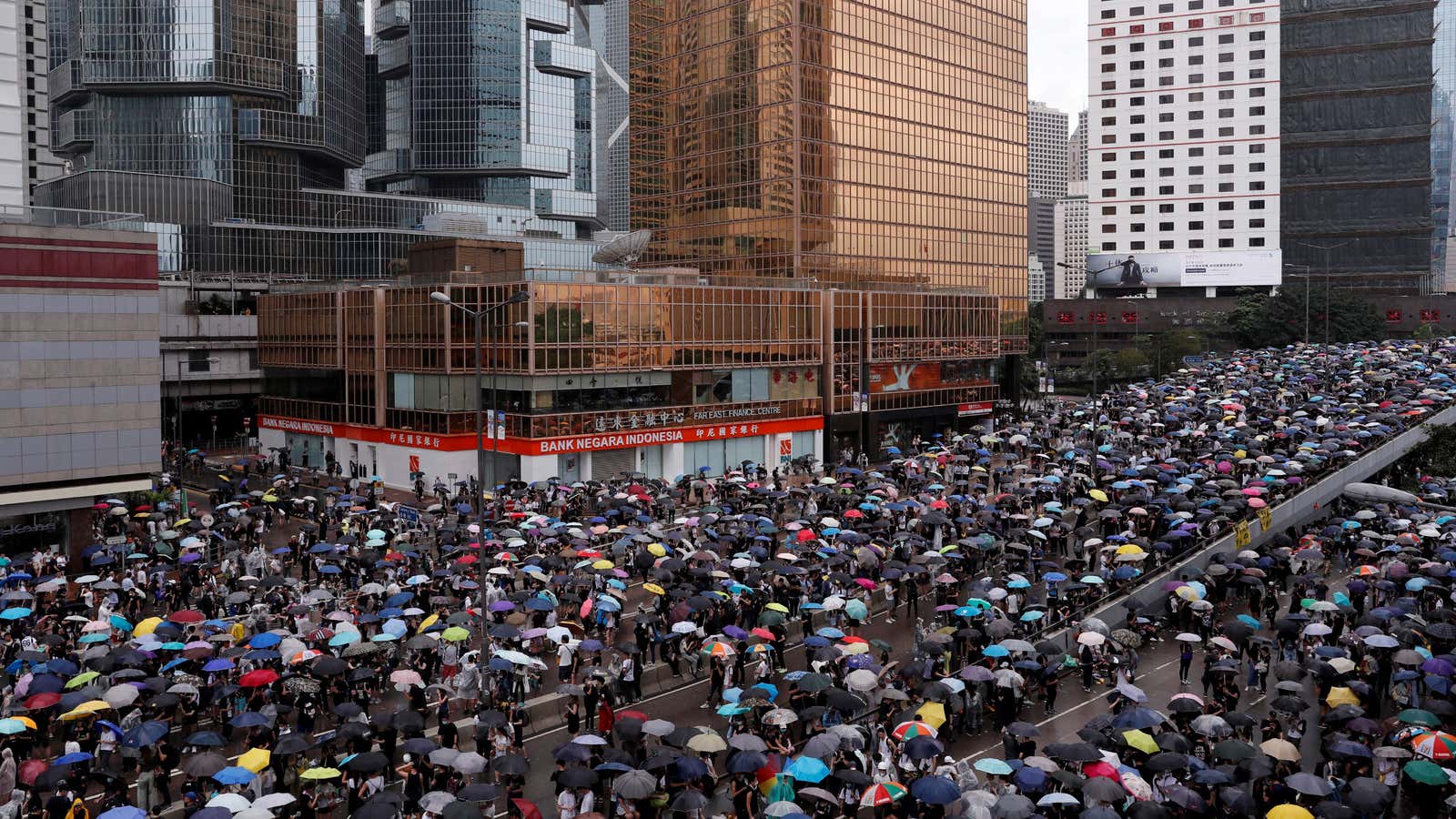The Hong Kong government vowed on Monday (June 10) to press forward with a controversial extradition bill even after an estimated one million protesters gathered the day before calling for it to be scrapped. Today (June 12), as a more spontaneous demonstration saw tens of thousands take over the streets near the main government complex, the legislature announced it was postponing the second reading of the bill, which would allow suspects to be extradited to mainland China for the first time since the 1997 handover.
That marked a win of sorts, admittedly a temporary one. The government has said that passing the proposed law as quickly as possible is the best way to end anxiety and divisions. From many Hong Kongers’ point of view, however, the best way to end the anxiety would be a repeat of what the government did in 2003—the year that saw Hong Kong’s largest gathering before Sunday’s.
That year on July 1 some half a million came out for an enormous rally against the government, overshadowing commemorations of the anniversary of the return to Chinese sovereignty from British control under agreements that gave Hong Kong a special status under the “One Country, Two Systems” framework. That status gives Hong Kong its own judicial system, as well as level of free speech and other rights that don’t exist in the mainland. But a security bill under consideration at the time would have put in place life imprisonment for subversion, treason, sedition and other offences against the state, creating fears that the city’s unique status was under attack. In the face of such opposition, the government had to cancel many meetings on the bill—it eventually stopped holding meetings on the bill, which lapsed in 2004.
But the central government in Beijing’s attitude to Hong Kong has hardened since then, making such an outcome less likely this time around. In 2014, protesters occupied central Hong Kong for two months after the central government didn’t follow through on a pledge to make the election of the city’s chief executive more democratic. Since then, the mainland has tightened its grip on the semi-autonomous city, which has seen prosecutions of pro-democracy figures, the banning of a political party, and the de facto expulsion of a journalist last year.
China, under president Xi Jinping, has also hardened toward any form of collective action on the mainland, no matter how innocuous or well-intentioned. As a result, feminists were rounded up in 2015 for a plan to hand out stickers against sexual-harassment on the subway, while students who have organized for workers’ rights (paywall) have also been picked up by public security. In 2015, hundreds of lawyers and other rights defenders were also detained, and later tried and convicted.
In this backdrop, the central government may be more unwilling than ever to allow Hong Kong’s leaders to make a move that shows that mass action can shape what a government does. But if they’re not willing to bend, in the face of what is clearly widespread fear of the consequences of the proposed law, they will just end up fanning the flames of what looks an awful lot like the start of Occupy 2.0.
Lawyer Antony Dapiran, the author of City of Protest, a history of dissent in Hong Kong, noted that even though pro-Beijing lawmakers are “in a position to steamroll it through,” the government could have second thoughts given the level of opposition shown on a single issue. In 2003, in contrast, unhappiness about the economy, and about the recent SARS epidemic, also coalesced around the bill.
The protesters are also helped, he said, by having a clearer ask than they did during the 2014 protests.
“How do you explain what genuine universal suffrage is—it’s just really hard to get a consensus,” he said. “Here it’s really easy: the government just has to withdraw the bill.”
Correction, June 12: This post earlier incorrectly referred to Antony Dapiran as Anthony Dapiran.
